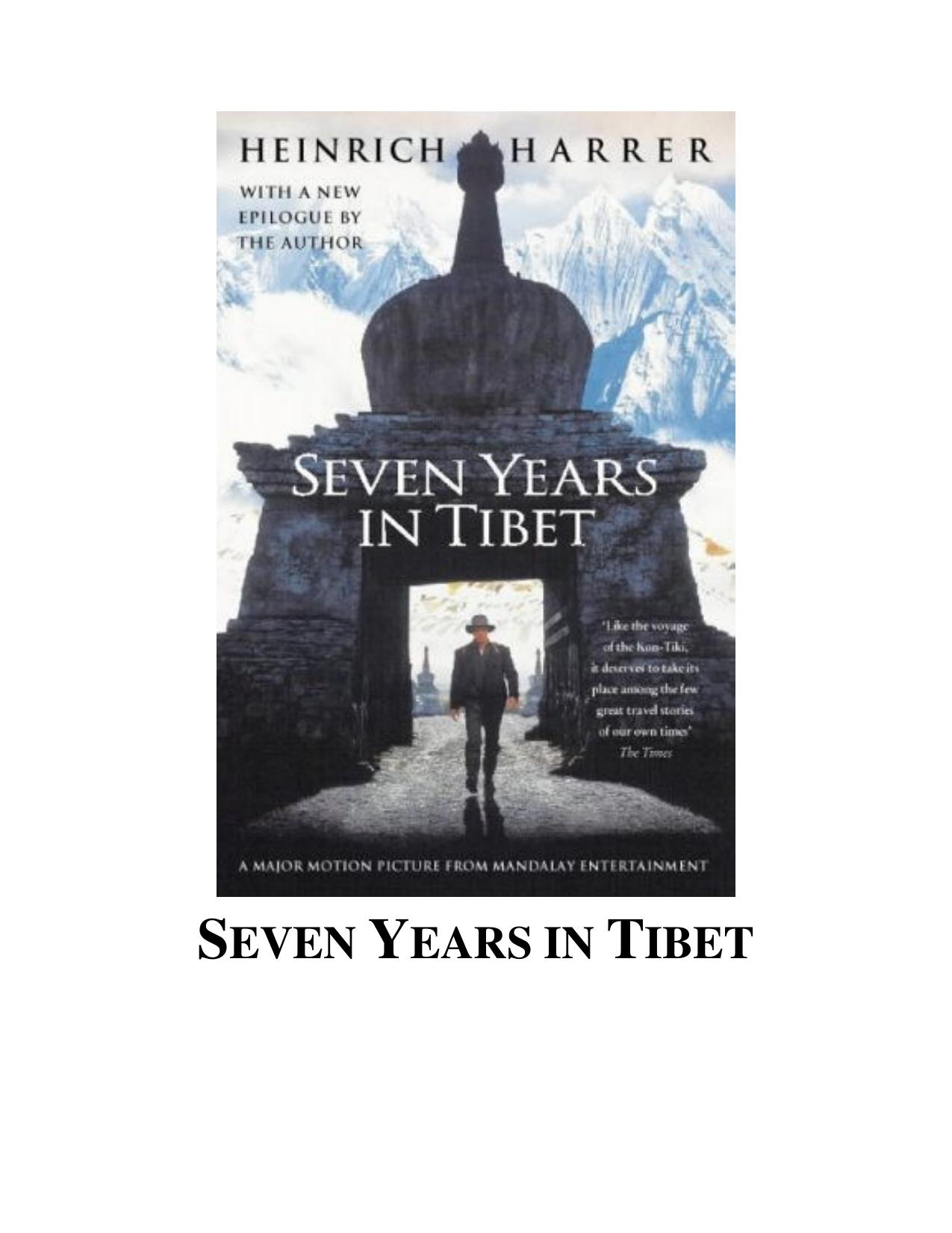Seven Years in Tibet by Heinrich Harrer

Author:Heinrich Harrer
Language: eng
Format: epub, azw3, pdf
Publisher: Penguin USA, Inc.
9
Asylum Granted
Many people came to visit us. Tibetans journeyed from far and wide to Lhasa to attend the New Year Festival, among them people whom we had got to know on our journey. It was not hard for them to find us, as we were still much talked of, and every child knew where we lived. Some brought us presents of dried meat, which is much appreciated in Lhasa. We learned, moreover, from these people that the officials through whose districts we had passed had been severely censured by the government. It depressed us to feel that persons who had received us in such a friendly manner had suffered such unpleasantness on our account. But it seemed that they bore us no grudge. We met a bönpo whom we had bamboozled with our old travel permit, and he only laughed and seemed glad to see us again.
The New Year’s celebrations did not pass off this year without a mishap. An accident that attracted much attention occurred on the Parkhor.
Every year they put up high flagstaffs made of heavy tree trunks fitted into one another. These are brought from distant places, and it is quite a task to carry them to Lhasa. It is managed in a very primitive way, and my indignation was aroused when I saw, for the first time, a procession coming in. It reminded me of the Volga boatmen. About twenty men drag each trunk, which is attached to them by a rope round their waists. They sing a monotonous air as they trudge along, keeping step with one another. They sweat and pant, but their foreman, who leads the singing, gives them no pause for rest. This forced labor is in part a substitute for taxation. The carriers are picked up at villages on the road and dismissed when they come to the next settlement. The monotonous airs to which they drag their burden are said to distract their minds from the severity of their task. I should have thought they would do better to save their breath. The sort of fatalistic resignation with which they lent themselves to this backbreaking toil always used to infuriate me. As a product of our modern age, I could not understand why the people of Tibet were so rigidly opposed to any form of progress. There obviously must be some better means of transporting these heavy burdens than by manhandling them. The Chinese invented and used the wheel thousands of years ago. But the Tibetans will have none of it, though its use would give an immense impulse to transport and commerce, and would raise the whole standard of living throughout the country.
When, later, I was engaged in irrigation works, I made various finds that strengthened my belief that the Tibetans had known and used the wheel many centuries ago. We uncovered hundreds of great blocks of stones as big as wardrobes. These could not have been carried save by mechanical means from the remote quarries where they had been hewn.
Download
Seven Years in Tibet by Heinrich Harrer.azw3
Seven Years in Tibet by Heinrich Harrer.pdf
This site does not store any files on its server. We only index and link to content provided by other sites. Please contact the content providers to delete copyright contents if any and email us, we'll remove relevant links or contents immediately.
| Africa | Asia |
| Canadian | Europe |
| Holocaust | Latin America |
| Middle East | United States |
Fanny Burney by Claire Harman(25778)
Empire of the Sikhs by Patwant Singh(22163)
Out of India by Michael Foss(16309)
Leonardo da Vinci by Walter Isaacson(11896)
Small Great Things by Jodi Picoult(6085)
The Six Wives Of Henry VIII (WOMEN IN HISTORY) by Fraser Antonia(4784)
The Wind in My Hair by Masih Alinejad(4420)
The Lonely City by Olivia Laing(4112)
The Crown by Robert Lacey(4099)
A Higher Loyalty: Truth, Lies, and Leadership by James Comey(4025)
The Iron Duke by The Iron Duke(3636)
Millionaire: The Philanderer, Gambler, and Duelist Who Invented Modern Finance by Janet Gleeson(3565)
Sticky Fingers by Joe Hagan(3449)
Alive: The Story of the Andes Survivors by Piers Paul Read(3302)
Papillon (English) by Henri Charrière(3264)
Joan of Arc by Mary Gordon(3253)
Stalin by Stephen Kotkin(3081)
Aleister Crowley: The Biography by Tobias Churton(3015)
Ants Among Elephants by Sujatha Gidla(2920)
